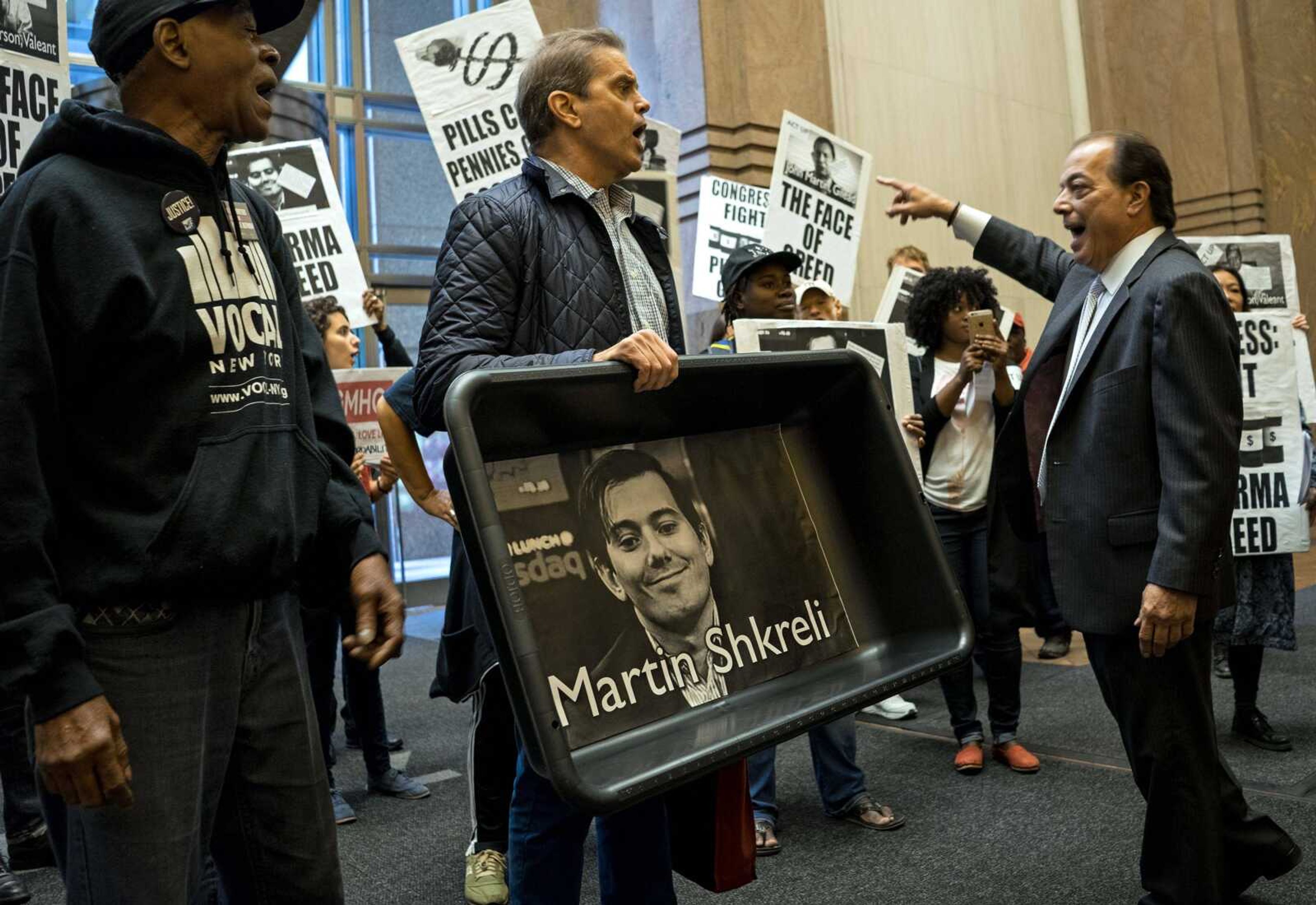Senate panel summons price-hiking CEO of Turing Pharma
WASHINGTON -- A Senate committee launched an investigation Wednesday into exorbitant drug price hikes by Turing Pharmaceuticals and three other companies, responding to public anxiety over rising prices for critical medicines. The Senate's special committee on aging requested documents and information from Turing, Valeant Pharmaceuticals and two other drugmakers under scrutiny for recent price spikes...
WASHINGTON -- A Senate committee launched an investigation Wednesday into exorbitant drug price hikes by Turing Pharmaceuticals and three other companies, responding to public anxiety over rising prices for critical medicines.
The Senate's special committee on aging requested documents and information from Turing, Valeant Pharmaceuticals and two other drugmakers under scrutiny for recent price spikes.
Notably, the senators called for a face-to-face meeting with Turing Pharmaceuticals CEO, Martin Shkreli, "as soon as it is practicable." Shkreli has become the public face of the pricing controversy after his company raised the price of Daraprim by 5,000 percent after obtaining rights to the drug. The drug is the only U.S.-approved treatment for a deadly parasitic infection called toxoplasmosis.
Turing said in an emailed statement: "We are reviewing the committee's request and, as we have and continue to do with similar congressional inquiries, we look forward to having an open and honest dialogue about drug pricing."
Separately, Democrats in the House of Representatives called on their Republican colleagues to summon the CEOs of Turing and Valeant to a congressional hearing and issue subpoenas to collect documents from their companies.
Valeant already is under investigation by several members of Congress for its general business strategy, which involves buying smaller drug developers and jacking up prices on their medicines.
Turing and Valeant also have received subpoenas from federal prosecutors seeking information about drug pricing and other policies.
Senators Susan Collins, R-Maine, and Claire McCaskill, D-Missouri, said a hearing on the issue is scheduled tentatively for Dec. 9. Collins chairs the aging committee, and McCaskill is its ranking Democrat.
"We need to get to the bottom of why we're seeing huge spikes in drug prices that seemingly have no relationship to research and development costs," McCaskill said. She said some of the increases resemble "little more than price gouging."
The committee also sent letters to Retrophin Inc. of San Diego and Rodelis Therapeutics of Alpharetta, Georgia. The lawmakers question Retrophin about its decision to raise the price of a kidney drug, Thiola, from $1.50 per tablet to $30 per tablet. The letter to Rodelis questions the company's price increase on a tuberculosis drug by more than 2,000 percent to $10,800 per bottle.
The Senate aging committee initially was formed to oversee Social Security, Medicare and other programs for seniors.
It has no authority to write laws but often investigates industries that prey on seniors.
Last week a national poll found that sky-high drug prices remain the No. 1 health concern among Americans, according to the nonpartisan Kaiser Family Foundation. Responding to this public outrage, Democratic presidential candidates Hillary Clinton and Bernie Sanders have each laid out plans to use federal authority to curb price increases.
Overall, prescription drug prices have been on the rise for years. Between 2008 through 2014, average prices for the most widely used brand-name drugs jumped 128 percent, according to prescription benefit manager Express Scripts Holding Co. In 2014, the company estimated that total U.S. prescription drug spending increased 13 percent. Reasons include increasing research costs, insufficient competition and drug shortages.
Connect with the Southeast Missourian Newsroom:
For corrections to this story or other insights for the editor, click here. To submit a letter to the editor, click here. To learn about the Southeast Missourian’s AI Policy, click here.










